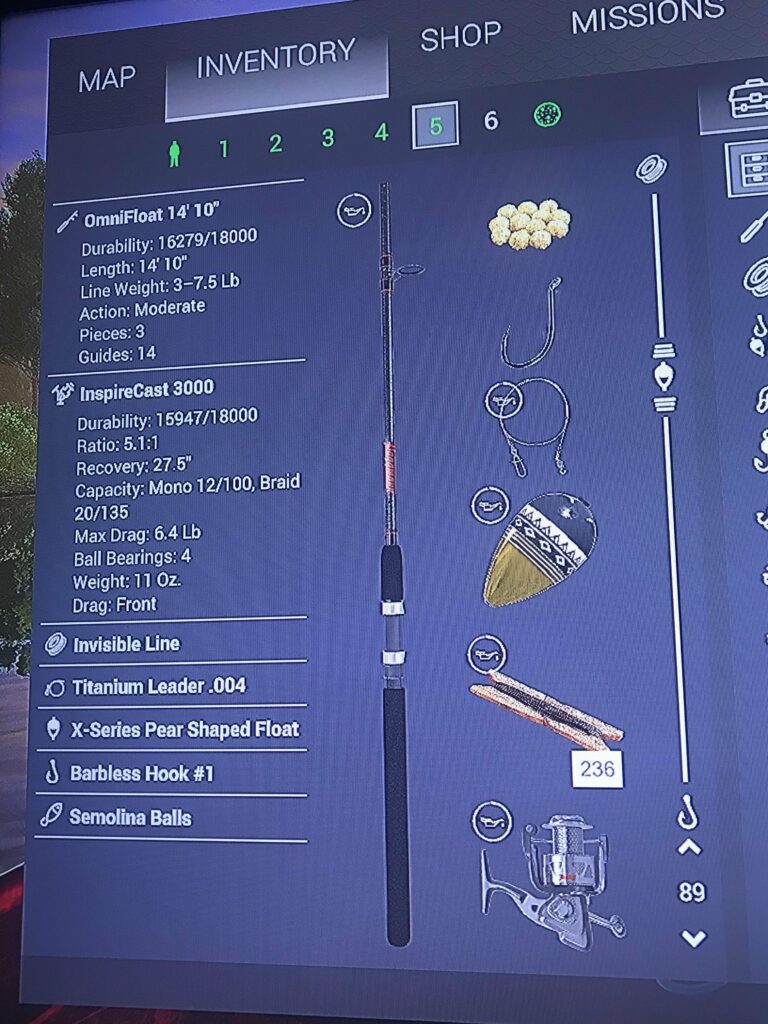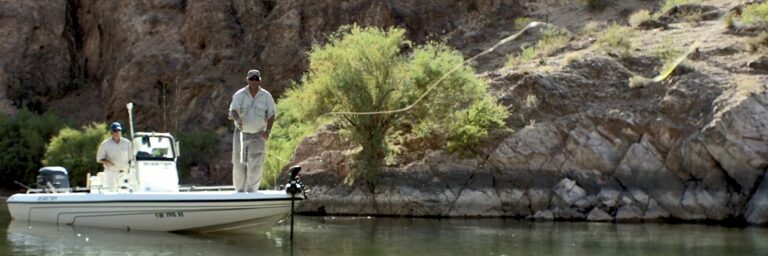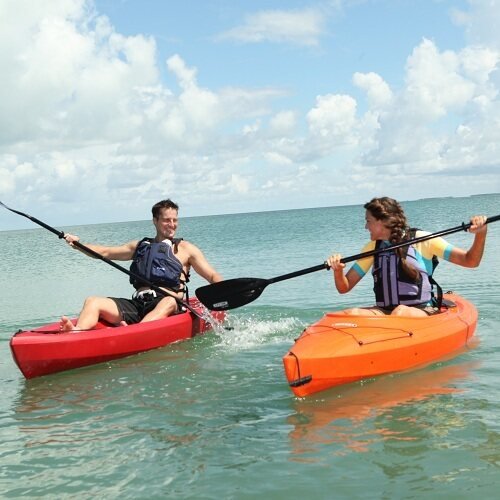Optimal Morning Fishing Times: Revealed!
Are you an avid angler? Do you often find yourself pondering over the question, “What time in the morning is best for fishing?” Well, fret no more because we’ve got you covered! In this article, we will embark on a journey to unravel the secrets of optimal fishing times in the early hours. Whether you prefer casting your line at the crack of dawn or waiting for the sun to rise a little higher, we’ll explore the factors that can influence your success on the water. So, let’s dive right in and uncover the magic moments when the fish are biting.
What Time in the Morning is Best for Fishing?
For many fishing enthusiasts, the early morning hours hold a certain allure. But what is the best time to head out to your favorite fishing spot? The answer may depend on various factors, including the type of fish you’re targeting, the weather conditions, and the specific location. In this article, we will dive into the different factors that can influence the best time in the morning for fishing. We’ll explore the impact of sunrise, tide patterns, weather conditions, and the behavior of different fish species. By the end, you’ll have a better understanding of when to set your alarm clock for your next fishing adventure.
The Impact of Sunrise on Fishing
One of the key factors in determining the best time to fish in the morning is sunrise. Many experienced anglers swear by the “golden hour,” which refers to the period just before and after the sun rises above the horizon. During this time, the low angle of the sun’s rays can create ideal conditions for fishing. Here’s why:
1. Increased Activity
As the sun rises, it provides an increase in light intensity that triggers the feeding instincts of many fish. They become more active and start searching for food. This is especially true for species like bass, trout, and walleye, which are known to be more active during low-light conditions.
2. Cooler Water Temperatures
During the early morning hours, water temperatures tend to be cooler compared to later in the day. Fish, especially cold-water species, are more comfortable and active in cooler water. This makes the early morning an ideal time to target species such as trout and salmon that prefer colder water temperatures.
3. Less Disturbance
In the early morning, there is generally less boat traffic and fewer anglers on the water. This leads to less disturbance and noise, which can spook fish. With fewer distractions, fish are more likely to be receptive to your bait or lure, increasing your chances of a successful catch.
The Role of Tide Patterns
1. Understanding Tidal Movement
If you’re fishing in coastal areas or near estuaries, it’s important to consider the impact of tides on fish behavior. Tides are caused by the gravitational pull of the moon and the sun. Understanding tidal movement can help you determine the best time to fish in these areas.
2. Incoming Tide
During an incoming tide, water is moving toward the shore. This can create an ideal feeding situation for fish, as they anticipate the influx of food being carried in by the tide. The best time to fish during an incoming tide is usually a few hours before high tide.
3. Outgoing Tide
Conversely, during an outgoing tide, water is moving away from the shore. This can disperse baitfish and make it more challenging to locate fish. However, some species, like striped bass, are known to feed actively during an outgoing tide. The best time to fish during an outgoing tide is typically a few hours after high tide.
Weather Conditions and Fishing Success
Weather conditions play a crucial role in fishing success. Here are a few weather-related factors to consider when planning your early morning fishing trip:
1. Temperature and Barometric Pressure
Fish are cold-blooded creatures, and their activity levels can be influenced by changes in water and air temperature. As a general rule, fish tend to be more active when there is a stable or rising temperature trend. Additionally, many anglers believe that fish are more likely to be active when the barometric pressure is stable or rising.
2. Wind
Wind can have both positive and negative effects on fishing. A light breeze can create ripples on the water’s surface, which can help camouflage your presence and make fish feel more secure. On the other hand, strong winds can make it challenging to cast accurately and control your fishing gear. Additionally, windy conditions can make fish more wary and less likely to bite.
3. Cloud Cover
Cloudy days can be advantageous for fishing, as they provide a break from the intense sunlight. Many fish species, like bass and trout, prefer low-light conditions and are more active when the sun is hidden behind clouds. Overcast skies can also make fish less cautious, increasing your chances of enticing a bite.
Fish Behavior and Feeding Patterns
Understanding the behavior and feeding patterns of various fish species can give you insights into the best time to fish in the morning. Here are a few examples:
1. Bass
Bass are known to be early morning feeders, especially during the warmer months. They tend to be more active and aggressive during low-light conditions. Targeting bass during the early morning, especially around sunrise, can yield excellent results.
2. Trout
Trout, particularly rainbow and brown trout, are often more active during the early morning hours. They are known to be opportunistic feeders and are attracted to insects and other small creatures that are active during this time. Fishing for trout in the morning can lead to successful catches.
3. Walleye
Walleye are another species that exhibits peak feeding activity during low-light periods. They have excellent low-light vision and are often found near shallow areas or drop-offs during the early morning. If you’re targeting walleye, setting your alarm early can increase your chances of landing a good catch.
4. Saltwater Species
Many saltwater species, such as snook, redfish, and tarpon, are more active during the early morning hours. They often feed in shallow water or near structures like mangroves or jetties. Timing your fishing trips to coincide with the early morning can provide you with exciting saltwater fishing opportunities.
Determining the best time in the morning for fishing involves considering several factors. While sunrise and the golden hour are often recommended, the impact of tides, weather conditions, and fish behavior should also be taken into account. Remember, there is no one-size-fits-all answer, as different fish species have their own unique patterns and preferences. By understanding these factors and adapting your fishing strategy accordingly, you can increase your chances of a successful outing. So set that alarm clock, pack your gear, and get ready to enjoy the tranquility and excitement of early morning fishing.
FAQs
Q: Is it necessary to fish in the early morning for a successful catch?
A: While the early morning is often considered prime fishing time, fish can be caught throughout the day. However, fishing in the early morning can provide certain advantages, including increased fish activity and less disturbance.
Q: What if I can’t fish in the morning due to other commitments?
A: If you can’t fish in the early morning, don’t worry. Fish are caught at different times of the day, and you can still have success later in the day. Adjust your fishing strategy to the conditions and target species you’re after.
Q: Should I only consider the factors mentioned in this article?
A: While the factors mentioned in this article are important, they are not exhaustive. Other factors, such as moon phases, water clarity, and fishing pressure, can also impact fishing success. Stay open to learning and adapting your approach based on the conditions you encounter.
Q: Are there any exceptions to the early morning rule?
A: Yes, there can be exceptions. For instance, certain fish species may be more active during the evening or nighttime. It’s always a good idea to research specific species and consult local anglers or fishing guides for the best spots and times to target them.
Q: Can I catch fish during the midday heat?
A: While fish activity may decrease during the midday heat, it doesn’t mean you can’t catch fish. Focus on shaded areas, deeper waters, or structures where fish seek refuge from the heat. Adjust your bait and techniques to entice bites in these conditions.
Frequently Asked Questions
What is the best time in the morning for fishing?
The best time in the morning for fishing depends on various factors such as the species of fish you are targeting and the location. However, many experienced anglers recommend starting fishing at dawn, which is usually around 5:30 am to 6:30 am. During this time, fish are often more active, especially in freshwater lakes and rivers. It’s when they are actively searching for food. Additionally, the early morning hours provide cooler temperatures and less fishing pressure, which can also increase your chances of a successful catch.
Are there any specific times that are better for freshwater fishing?
When it comes to freshwater fishing, early morning hours are generally considered the best. The period just before sunrise, known as the “golden hour,” is particularly productive as fish are more likely to be actively feeding. However, it’s important to note that different species may have specific feeding patterns. For example, bass tend to be more active during low-light conditions or in the evening, while trout are often more active early in the morning or late in the afternoon.
Is there a specific time in the morning when saltwater fish are most active?
Saltwater fish behavior can vary depending on the tides, weather conditions, and the specific location. However, many saltwater anglers find that the few hours leading up to high tide in the morning can be the most productive. During this time, the rising water brings in more baitfish and other food sources, attracting predatory fish. It’s advisable to check local tide charts and research the feeding habits of the target species in your area for more precise information.
What about mid-morning fishing? Can it be successful?
While early morning fishing is generally more productive, mid-morning fishing can still yield positive results, especially if you adapt your techniques. As the sun rises and the day progresses, fish might become less active and seek shelter or deeper waters. To increase your chances, consider using lighter tackle, fishing in shaded areas, or targeting specific fish species known to be active during that time of day, such as bluegill or catfish.
Should I always fish in the morning, or are there other good times during the day?
Morning fishing is often favored due to factors like increased fish activity and reduced fishing pressure. However, fish can be caught at other times of the day as well. Late afternoon and evenings can be productive, especially during warmer months when fish become more active as the sun starts to set. It’s also worth noting that different weather conditions, such as overcast skies or light rain, can influence fish behavior and make them more eager to bite throughout the day.
Can the time of year affect the best fishing time in the morning?
Absolutely. The best fishing time in the morning can vary depending on the season and the specific body of water you are fishing in. In general, during spring and fall seasons, mornings tend to be more productive as fish are actively feeding after periods of cooler weather. In summer, the early morning hours are still productive but may be more regulated by factors like water temperature and oxygen levels. Winter fishing often requires more patience and persistence, with mid-morning being a favorable time when water temperatures have slightly risen.
Final Thoughts
In conclusion, determining the best time in the morning for fishing depends on various factors such as the target species, weather conditions, and location. While some anglers prefer early morning hours, others find mid-morning or even late morning to be more productive. It is essential to consider the feeding patterns and behavior of the fish being targeted. Experimenting with different time frames and observing fishing reports and local knowledge can help anglers identify the optimal time for successful fishing expeditions. So, when planning your next fishing trip, remember to consider these factors to determine the best time in the morning for fishing.


